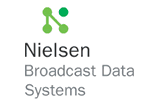With much respect to Eminem and NWA, aspiring artists sometimes watch movies like 8 Mile and Straight Outta Compton’ and automatically presume launching a Hip Hop career works the same way they see in these films. Here at Studio 11, we meet and work with a lot of unsigned, aspiring rappers on an everyday basis. Because Hip Hop and Rap are a multi-billion dollar industry, one of the most frequent questions we get asked here in the studio is what should the artist do with their music in order to have the best chance of launching a successful career. 90% of the work we do in the studio is related to the hip hop industry, so we get asked these questions pretty frequently. Luckily, in the 20 years Studio 11 has been in existence, we have encountered plenty of A&R’s, big name artists, executives, and music producers who have made a heavy mark for themselves inside the industry.
So the following suggestions come from our years of experience and association within this industry with artists like Chief Keef, Crucial Conflict, Kanye West, Lupe Fiasco, R Kelly, Twista and the managers and producers who have worked with them as well. When rappers aspire to get promoted on various Hip Hop/Rap blogs and sites, these are the people they basically hope to excite and work with. So to help answer these questions, we put together this list that focus’s on advice that can potentially help you get your stuff online as well as be an overall ‘how to’ guide to obtaining success as an independent artist.
Remember, this advice doesn’t necessarily guarantee success in getting into the industry. But between our experience and associations in the industry, we have personally seen what it takes for artists to go from having zero success to having that ‘Kanye West’ success. For what its worth, I used to wash cars at a Toyota Dealership before getting involved with audio engineering and production in the music industry. I had to make the hard decision between keeping the same job which paid me, or to quit and pursue my passion by starting as an unpaid intern with a major production studio in Chicago. For me as well as the rest of the Studio 11 staff, its easy for us to relate to the aspiring artist’s and rappers out there selling cd’s out of their trunk in pursuit of their dreams. From what we learned, advice from the major industry players you hope to someday work with, along with intelligent planning, muscle and a dash of luck, is the one of the best remedies to start a blossoming career.
Rule 1: Research, Research, Research
“In the current atmosphere of the music business, making the evolution from your grandmother’s basement to the world wide stage can be extremely difficult. Taking a chance on an artist, especially a rapper without any buzz or traction is something most record labels generally don’t do anymore, especially for male artists or rappers. When we say buzz, we mean attributable data about you or your brand. The data we are talking about can be summed up in the fashion of trackable Broadcast Data Systems (BDS), media based radio plays, huge hype on a mix tape or album (thousands of online digital sales, blogs or reviews and acclaim from credible publications), online presence on important music websites, significant Music Video streams on Youtube, endorsements from outside entities or noteworthy artists, etc.

Many aspiring artists and rappers wonder how this specific criteria can be accomplished when other artists or ‘competition’ has the funding, business contacts, and managers. In order to get signed or become a successful independent artist like ‘Chance The Rapper’ takes a well orchestrated and thorough plan.
Rule 2: What You Got and How You Use It
“Make sure you have a job: There is a good chance that you will not make much or any money as you get started working on your life’s passion. For many, this can induce a stressful state of being and really disrupt your creativity, especially if you are just scraping by and living day to day. Find work that will allow you to pay your bills and put food in your fridge, that is until your purposeful hobby blossoms into a ‘paying occupation.”
“Determination: This is the attribute that will keep you moving in a positive direction as apprehension sets in, as you reach those ‘going nowhere’ times when absolutely nothing happens or even when you are making progress.
“Artistry: It all starts with the ability to stand out from the rest of the pack. Even if you discover you are heading in a direction that other aspiring artists are pursuing (producing, rapping, singing), you should find your own little pocket or niche that will help you stand out from your peers and completely set you apart.

“The Resources: Learn how to make a little bit go a long way. You can essentially do almost as much with a couple people as you can with many, especially if it’s all you have to go with. Remember Nas’s saying “All I Need is One Mic”. To sum p this analogy, he essentially means that with this one simple tiny thing (the mic), he has the power to do a lot and potentially change the world because he is going to use it (the mic) for everything he can get out of it. Learning to prioritize and work in the smartest most productive manner with the barest of what you need will force you into a habit of always making the best of what you have.
“Game Plan: Once you’ve developed a cohesive and reliable system with what you have going, then it becomes important to exploit the little you have with an approach that is strategic. Make the smallest steps count towards the much bigger steps.
“Foresight: Have a coherent (and realistic) blueprint of where you want to be as well as what you think it will take to get you there. Understand that 99.9% of the time, success will not happen overnight. Through trial and error, it will take you time as you develop the proper pace and rhythm, which will ultimately tighten up your strategy and reveal the artist you were meant to be. Don’t be afraid to try things!
Rule 3: Be the Best Artist You Can Be
“The one main thing new recording artists forget these days is that it’s all about the music. It really is the most important thing.The recording artist will not get very far if their song or music doesn’t immediately resonate with an audience you do not personally know. Just like Crystal Pepsi, if your product sucks, you just aren’t going to get anywhere with it. Count on your friends and family for support, but try to keep their opinions to the side (unless your friend or family is in the music business). Always take into account how people you do not know react when hearing your music, especially people who are more likely to enjoy your music than not. That is the best gauge.

Now, if you wanna get that mojo going, produce or find the best beats/instrumentals that not only define your artistic vision, but allow you to write indisputable commercial hits. And more importantly, keep writing and writing and writing. The rule is, the more songs you write for a given project, the more opportunities there will be to produce a big commercial hit or multiple commercial hits. Take your time and make sure your words are well written and rehearsed. The flow and energy of the words you deliver is whats really gonna sell the song. Ya, this might not sound that easy, but remember, if it was easy, everyone would be a multi platinum selling recording artist. It takes hours and hours of ungrateful, taxing work, integrated with heartbreaking repudiation and soul searching to become a commercial success as a recording artist.
Rule 4: Multi-task It
The main thing to lock into your head as a recording artist is that it all falls on you, regardless if you’re independent or signed to a record label, whether big or small. It’s important to have a team assembled around you that can undertake multiple responsibilities as well as understanding their specific role in the team. If record labels are looking to sign you, make sure you choose the label that not only understands you and your brand, but also knows how to expand on it in a way that’s positive for your artistic identity and vision. Its also important to build up your relationships with people within the industry, whether they are record label exec’s, to radio and club djs, venue owners and promoters, and podcaster’s and music reporters. Be consistent and persistent, but not overbearing. More importantly, just like we said in ‘Rule 3’, you gotta have an amazing product and the dedication to be great.
Rule 5: The Edge of Independence
Without trying to crap on major labels, learn to enjoy and take full advantage of your independence. The more buzz, money and notoriety you can manufacture independently, the more you will be able to bargain and negotiate a better deal for yourself when labels approach you. Remember, it is better for the record label to be at your mercy than for you to be at the mercy of the label. The only way to create this kind of environment to negotiate from is by being the best independent artist you can be. Its all about putting yourself in a position of undeniable strength when the time comes to deal with record labels. What opens up a contract is when the label understands that you don’t necessarily need them to be ultra successful.
Rule 6: Developing a Winning Brand
There are no universal guarantees in the rules or advice given to ambitious young recording artists who desire to get out of their family’s house and make it as a professional in the industry. However, there are multi steps one can take to help solidify their chances of having future success. If you make music and don’t do anything with it, how can one expect and ensure success? These basic steps consist of but certainly aren’t limited to: obtaining a team of people with the expertise who believe whole-heartedly in your vision and music, coming up with an image as an artist that brands who you are and your music properly, and developing a product that is undeniable in its ability to sell itself.
Rule 7: Speak Softly But Carry a Big Stick
In order for the opportunity of getting out of your parents house to work for an artist, many things need to occur as well as a little dash of luck. Its important that the recording artist keeps and maintains a realistically good head on their shoulders. You won’t make it very far if you have a bloated opinion of oneself or of the whole approach. Be unpretentious, don’t follow others or industry trends just cause, and most importantly be yourself. When you work really hard for yourself, generally, the results will speak for themselves. Finally, don’t spam or consistently agitate people who you are trying to sell yourself and your music to. This can push people away. Give them the bread, but allow them to decide if and when they wanna take that first bite.
Rule 8: See Me, Hear Me, Know Me
The last 10 years have seen a trend in the concept of needing an online presence to obtain success. While an online presence is certainly needed to build your career, it definitely has its pro’s and con’s. Many artists like to promote their music by sending out links to potential fans via social networks such as Facebook, Instagram, and Twitter. The problem is many of these people consider this spam because of the callous or unmotivating approach of the promotion.

The real world truth is its all about developing a proactive balance between an online and physical presence. The internet is a vital thing to a recording artist’s success, but networking, performing and physically promoting are uniformly important to building the fan base. Remember, back in the day, people didn’t have the internet to promote their music. They had their music and the trunk of their car to sell and promote it out of. Not only did this help create some of the most successful recording artists in the world, but it helped spawn and promote new genres of music and sound which are at the forefront of trends today.
Rule 9: The Wolf of Wallstreet
One of the biggest mental misconceptions recording artists have is the belief people owe them something because they made and released a song. Just because you a made a song or songs and are able to perform them doesn’t obligate a venue to pay you for your time. In order to facilitate paid bookings, the recording artist must be able to sell tickets and or bring heads (audience) which in turn helps generate additional revenue for the venue or company from the beverages, food and other products they sell within the confines.
The business of music is really a business. Its crucial that the recording artist invest in themselves and their business until a healthy revenue starts making its way back into their pockets. There are more ways to invest than just money. Time is an investment. Emotions are and investment. Persistence and devotion are investments too. If you are not receiving revenue from performing or being featured on other artists music, then it is quite evident you have not taken the time to truly invest in yourself. Going the independent route in the beginning is a smart way to go because it can be done a small budget, but it is still some kind of budget regardless of how big or small it is. Until the artist recognizes this and wisely invests in their business, the whole thing is just a hobby which doesn’t generate revenue.
The opposite of this philosophy is that if the final goal is to achieve a major record deal, it is imperative that the recording artist invests the correct sum of money to ensure that their ‘business of music’ becomes a success. Usually this means investing hundreds of thousands of dollars. That money doesn’t fall from the sky, though it would be nice. It happens as a result of laser focus and dedication on the continuous growth and development of their business. If a recording artist should expect large returns to be generated by their music business, which is what record labels look for in potential artists, then they must invest heavily and wisely in themselves.
Overall, the artist must understand that both directions (independent vs label) cost time, money and of course a whole lot of effort and unbelievable talent. But realize, in 2017, you don’t necessarily need the major label like you did 10-20 years ago. There are many more avenues available to the independent artist which can generate sufficient revenue by simply investing in your independent ‘music business’ until the cash starts to flow. Chance The Rapper is amazing example. But remember, he didn’t get to where he is now by slackin. He got there because of the 100% belief he had in his music business by investing everything he could into it.
Rule 10: Cultivating and Preserving Consistency
Lastly, one of the most important things a recording artist needs to maintain in today’s music market is visibility. At the end of the day, if you’re producing the best music the world could ever hear and nobody actually hears it, what is the point? So you gotta be out there, be visible, heard and seen, touched, even smelled if you catch my drift. Get out there and perform as much as you can, wherever you can. Learn how to be hated, learn how to be appreciated. Learn what works and what doesn’t. You gotta make it air tight. The more you perform, the more you master the craft of live performance. Many artists have defined their careers through their live performance. Record your performances and show them on sites like Youtube and Vimeo. These websites have helped create many recognizable names in the industry, so definitely have your stuff uploaded and available links to share.
Its also important to give music away for free. There are so many out there who are also trying to make it as a recording artist in the industry that its important to do things that allow people to become fans without them initially investing in you. Like we said earlier, social networking has become an important avenue for promotion. You gotta be up on all the sites, Facebook, Twitter, etc, reaching out to people from all walks of life. The key to these sites is understanding the best mechanisms to reach potential fans. A lot of times it revolves around the things you post on your page, the creativity behind these posts, and the specific goal in mind to each post. Don’t think of it as a thing where you can reach people with your music, think of it as a thing where it can help tell your story. Remember, all people like a good story. And when people like a good story they are gonna care about everything attributed to it such as the music, content, and products, as well as help spread the word and promote it. At the end, this results in revenue for your music business and when record labels see that people care about you, they are going to want to care about you too.
Hit us up at (312) 372-4460 if you are planning on making a record in Chicago!


Comments.
Currently there are no comments related to this article. You have a special honor to be the first commenter. Thanks!